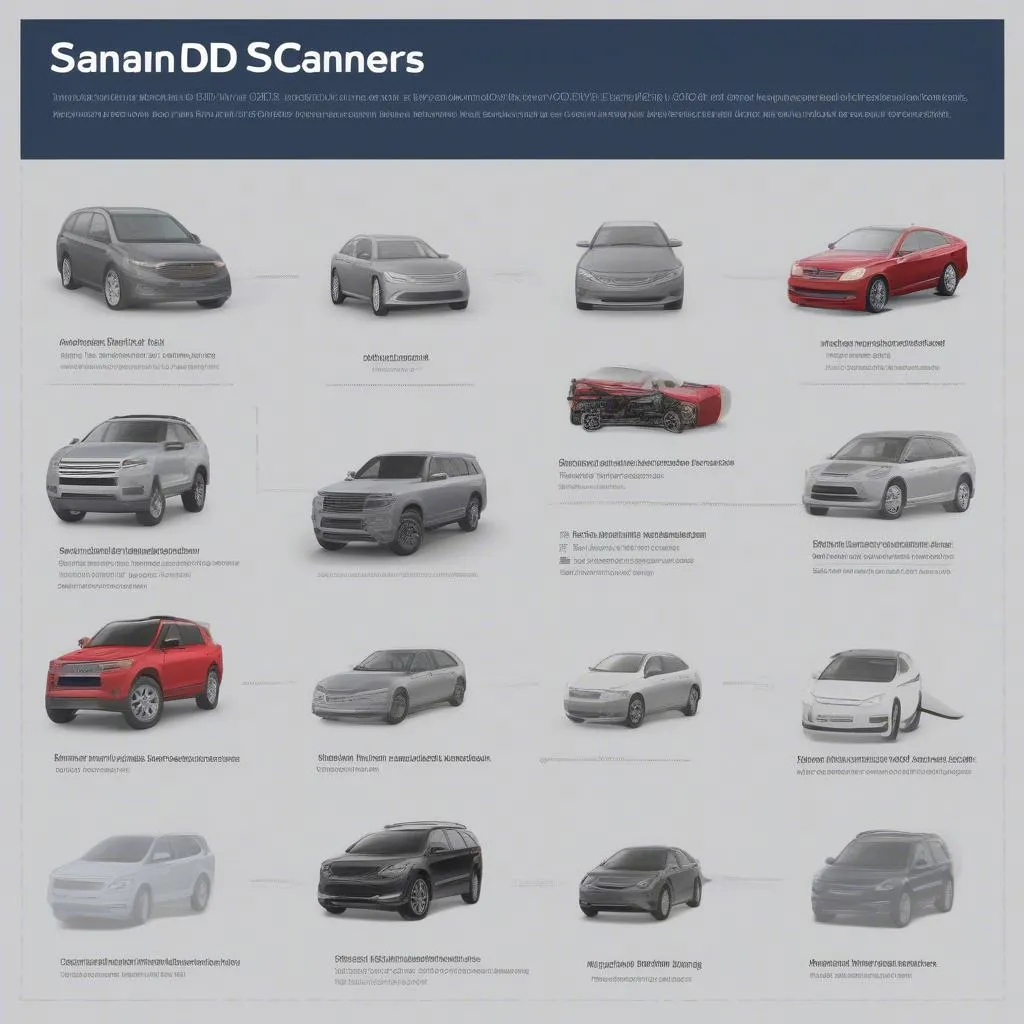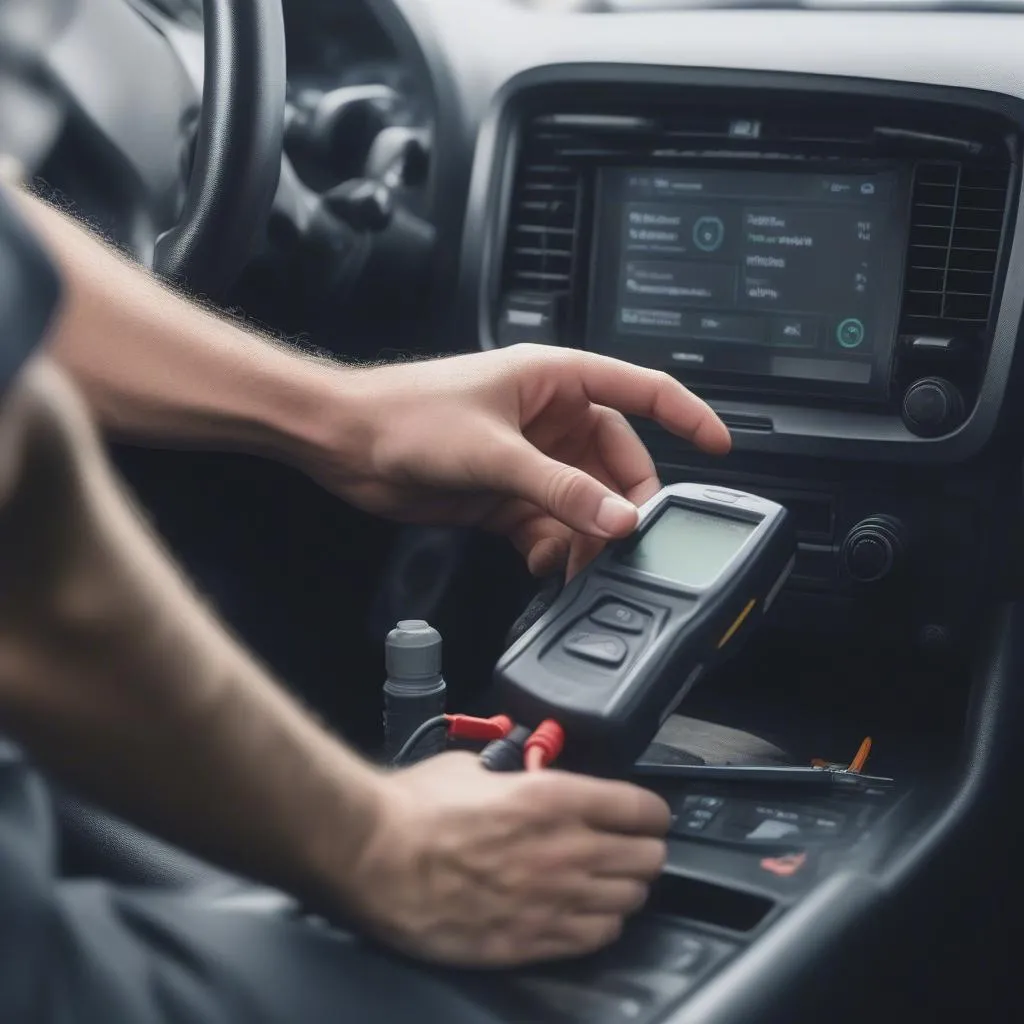Imagine this: you’re cruising down Highway 1 in your sleek Audi A4, the California sun warming your face, when suddenly, the check engine light pops up. Your heart sinks. What now? This, my friend, is where the magic of OBD scanners comes in. But not all OBD scanners are created equal. Just like choosing between a wrench and a socket set, understanding the differences in these diagnostic tools can save you time, money, and unnecessary headaches.
Delving into the Meaning of “Difference in OBD Scanners”
Before we dive into the nitty-gritty, let’s break down what we mean by “differences in OBD scanners.” We’re essentially talking about the various types of OBD scanners and how their functionalities differ. Think of it from these perspectives:
The Car Enthusiast’s Viewpoint: Imagine a Saturday afternoon spent tinkering under the hood. For car enthusiasts, the difference in OBD scanners might mean accessing more in-depth information beyond basic engine codes, like transmission data or ABS system diagnostics.
The Professional Mechanic’s Perspective: Picture a bustling auto repair shop in downtown Chicago. A professional mechanic relies on high-end OBD scanners, often dealer-level tools like the BMW ISTA or the Mercedes Xentry, to delve into complex vehicle systems and perform advanced diagnostics and programming.
The Budget-Conscious Driver’s Lens: For everyday drivers, the difference in OBD scanners boils down to finding a balance between functionality and affordability. They need a reliable tool to read and clear basic engine codes without breaking the bank.
Demystifying OBD Scanners: A Comprehensive Look
Now, let’s address the elephant in the room: what exactly are these differences? OBD scanners, or On-Board Diagnostics scanners, are like the translators between your car’s brain and your own. They plug into the OBD-II port (usually located under the dashboard) and read the Diagnostic Trouble Codes (DTCs) stored in your car’s computer.
Here’s where the differences kick in:
-
Basic OBD-II Scanners: These are your entry-level scanners, perfect for DIYers and budget-conscious drivers. They read and clear basic engine codes, providing you with a general idea of what’s going on.
-
Enhanced OBD-II Scanners: Stepping up the ladder, we have enhanced scanners offering additional features like live data streaming, freeze frame data, and the ability to graph sensor readings. This is particularly useful for monitoring engine performance and diagnosing intermittent issues.
-
Professional OBD-II Scanners: These are the big guns used by professional mechanics and dealerships. They offer comprehensive functionalities like bi-directional control (allowing you to command certain vehicle functions), module coding, key programming, and access to manufacturer-specific data.
-
Dealer-Level Scanners: These are the most sophisticated and expensive tools specifically designed for a particular car brand. Think of them as the ultimate weapon in a mechanic’s arsenal, capable of performing advanced diagnostics, programming, and even software updates. For instance, if you own a European car, you might need a specialized dealer scanner like the ones used for Volkswagen/Audi (VCDS) or BMW (ISTA).
 Types of OBD Scanners
Types of OBD Scanners
Common Questions & Concerns About OBD Scanner Differences
We often get questions from car owners like you about the nuances of OBD scanners. Here are some of the most frequently asked:
-
“My mechanic used a fancy scanner; can I use any OBD scanner on my car?” While all OBD-II compliant vehicles (most cars made after 1996) use the same 16-pin connector, the level of access and functionality vary greatly between scanners. Basic scanners might not communicate with all vehicle modules or provide the in-depth information a professional-grade tool offers.
-
“What’s the best OBD scanner for my Toyota Camry?” The best scanner depends on your needs and budget. For basic diagnostics and code reading on a Camry, an enhanced OBD-II scanner would suffice. However, for more advanced tasks like ABS bleeding or transmission diagnostics, a professional-level scanner might be necessary.
-
“Can an OBD scanner fix my car?” Think of an OBD scanner as a detective, not a mechanic. It helps identify the problem but doesn’t fix it. You’ll need the right tools and expertise to address the underlying mechanical or electrical issue.
 Mechanic Using OBD Scanner
Mechanic Using OBD Scanner
Choosing the Right OBD Scanner: Navigating the Maze
With so many options available, choosing the right OBD scanner can feel overwhelming. Here’s a simple breakdown:
- For Basic Needs: If you’re comfortable with basic car maintenance and just need to read and clear engine codes, a basic or enhanced OBD-II scanner is your best bet.
- For the Tech-Savvy DIYer: If you enjoy delving deeper into your car’s systems and want access to live data and more advanced features, opt for an enhanced or a professional-level scanner.
- For the Professionals: Mechanics and auto repair shops require the comprehensive functionalities of professional or dealer-level scanners for accurate diagnostics, programming, and module coding.
Need Help with Your Car Diagnostics?
We understand that navigating the world of OBD scanners and car diagnostics can be confusing. If you have any questions or need assistance choosing the right scanner for your needs, our team of auto experts is here to help! Feel free to contact us via WhatsApp at +84767531508 for personalized guidance and support.
In conclusion, understanding the differences in OBD scanners empowers you to take control of your car’s health. Whether you’re a casual driver or a seasoned mechanic, having the right diagnostic tool at your disposal can make all the difference in diagnosing and resolving car troubles effectively.
Looking for more insights into car diagnostics and OBD technology? Check out these articles: